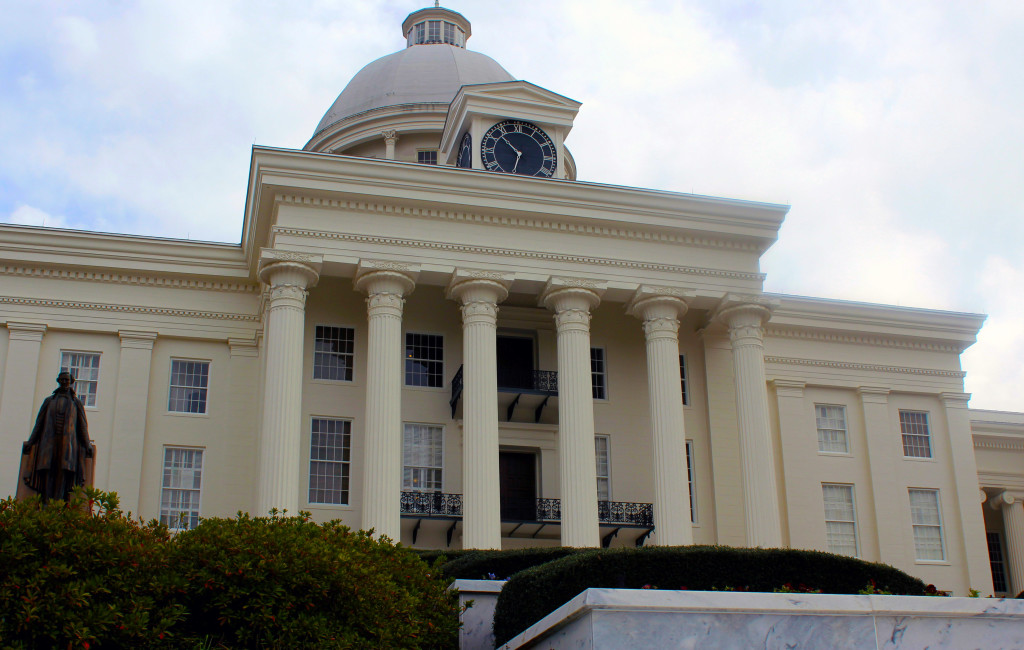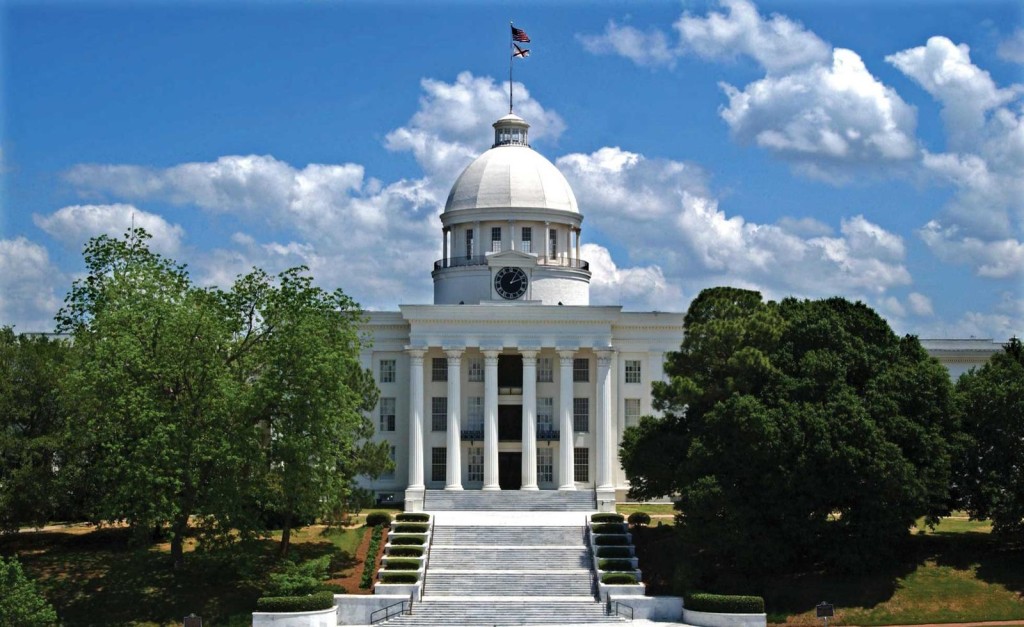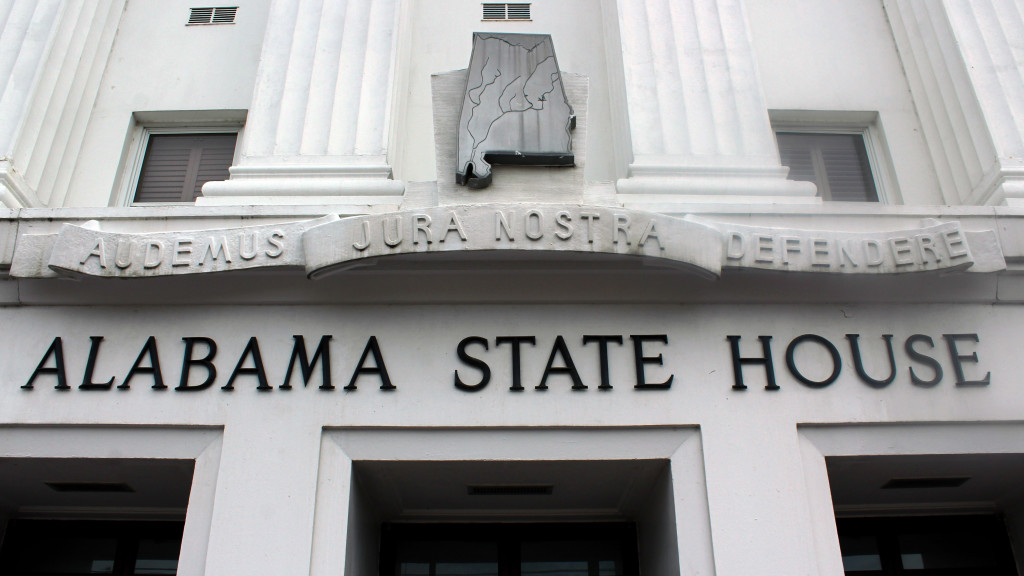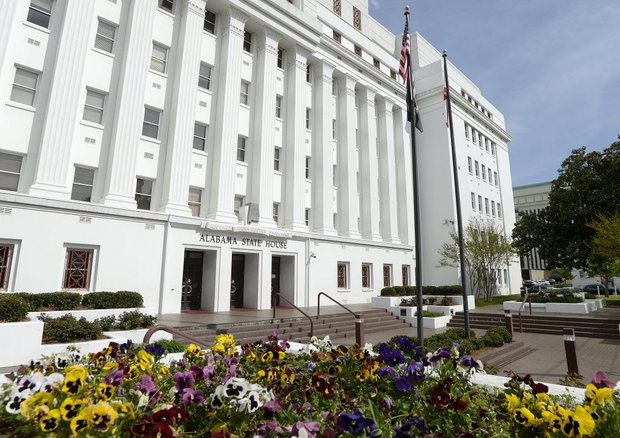Akiesha Anderson: Alabama’s grocery tax reduction: A penny saved, a better future paved

The first stop on the road to untaxing groceries in Alabama is straight ahead. Lawmakers achieved a significant victory for the people this year by passing legislation to cut the state’s 4-cent grocery tax by half. That change will begin this Labor Day weekend, as the first 1-cent reduction takes effect September 1. Ultimately, this small change likely will result in large savings for Alabamians who are working hard to make ends meet. Once the new law is fully implemented, many families will have hundreds of dollars more available each year to spend on food or other expenses. For decades, Alabama Arise has focused on reducing and ultimately eliminating the state sales tax on groceries, which essentially taxes survival. At the beginning of the 2023 legislative session, Alabama stood as one of only three states with no tax break on groceries. Thanks to determined advocacy by Arise members and other advocates, our state is off that shameful list at last. The story behind the legislative triumph Arise collaborated this year with many partners and lawmakers to introduce and pass the grocery tax reduction. That list includes the Alabama Grocers Association, Lt. Gov. Will Ainsworth, Sens. Andrew Jones and Merika Coleman, and Reps. Danny Garrett and Penni McClammy. This year’s breakthrough also would not have happened without other legislative champions who laid the groundwork for this moment, including former Reps. John Knight and Thad McClammy, former Sen. Hank Sanders and Reps. Laura Hall, and Mary Moore. The grocery tax law’s passage is a testament to the importance of continuing to hold the line and fight for change for as long as it takes. It’s also a testament to the importance of seizing the moment when opportunity arrives. Something spectacular happened this year as the stars finally aligned after decades of advocacy. When this year’s session began, many Alabamians were struggling with inflation and higher costs for essentials like eggs and bread. Simultaneously, the state was witnessing strong revenue growth. As elected officials began talking about one-time tax rebates, advocates recognized an opportune moment to make permanent progress on reducing the state grocery tax. And the revenue growth ensured this reduction would not cause severe harm to funding for our children’s public schools. A positive step forward State leaders seized this window of opportunity and united across partisan lines to reduce the grocery tax. It was amazing to witness the culmination of decades of hard work. And it was inspiring to see nearly every legislator co-sponsoring this monumental legislation. Many lawmakers tout this as the state’s largest tax cut ever, and it is one that will provide the biggest everyday benefit to people with low incomes. Ultimately, Alabama Arise remains dedicated to transforming the state’s regressive tax system into a more progressive one. Progressive tax systems levy taxes based on one’s ability to pay, whereas regressive systems work in the reverse. The grocery tax has long exemplified regressive taxation, burdening those with fewer resources by requiring them to pay proportionally more than wealthier individuals. Reducing the state grocery tax is a step in the right direction for tax justice. This penny saved is symbolic of a better future being paved for Alabama. What lies ahead Arise will continue advocating to eliminate the state grocery tax while protecting Education Trust Fund revenues. We look forward to working with the new Joint Study Commission on Grocery Taxation to find a sustainable path forward. Rebalancing Alabama’s upside-down tax system will require both lower taxes for people with low incomes and higher taxes for wealthy households and highly profitable corporations that can afford to pay more. As this year’s grocery tax reduction takes effect, we celebrate its many champions – most notably the Alabamians who stayed vigilant to ensure their voices translated into tangible policy improvements. We also celebrate this policy change as a symbol of progress and unity, and as a testament to what state leaders can accomplish when they put partisanship aside to pass legislation with profound benefits for individuals and communities. Cheers to eliminating the first cent, and to the ongoing journey toward a more prosperous and equitable Alabama! Akiesha Anderson is policy and advocacy director of Alabama Arise, a statewide, member-led nonprofit organization advancing public policies to improve the lives of Alabamians who are marginalized by poverty. Arise’s membership includes faith-based, community, nonprofit and civic groups, grassroots leaders, and individuals from across Alabama.
Steve Flowers: Legislative session begins

As the 2021 Regular Legislative Session begins, you will see new leadership in the state Senate. Republicans dominate both chambers, overwhelmingly. They have a supermajority and dominate all issues and the budgeting process. They acknowledge the handful of Democrats, but really never give them any say in decision making. Therefore, the leadership is determined within the Republican caucus. President Pro Tem, Del Marsh, decided in late November to step down from the all-powerful position of President Pro Tem of the Senate. Marsh had announced a few months earlier that he would not run for reelection to his Anniston based Senate Seat in the 2022 Elections. Many Montgomery insiders had foreseen this change in leadership for a while. The succession of state Senator Greg Reed of Jasper to the Pro Tem leadership of the Senate post was expected, as was the ascension of Senator Clay Scofield of Marshall County to the Majority Leader position. Greg Reed’s anointment to the omnipotent President Pro Tem position is a natural transition for the Alabama Senate. He is a real leader and well respected by his colleagues. This progression has been in the works for a while. Reed is a perfect choice to lead the Alabama State Senate. He is very organized and meticulous with excellent planning and organizational skills. Senator Clay Scofield is one of the most likeable people in the Senate. He is very jovial and friendly but deceptively effective. He is a young, prominent farmer from Sand Mountain and he will be a great Majority Leader. First-term State Senator Donnie Chesteen of Geneva/ Houston is doing a yeoman’s job working to expand rural broadband in the state. He served eight years in the House before moving to the Senate in 2018. The Democrats may have a superstar emerging in the Senate with Kirk Hatcher of Montgomery. Hatcher is in his first term in the Alabama House. When Senator David Burkette left the Montgomery Democratic Senate Seat last year, an open race to fill the seat began. Hatcher entered and led a six-person field with an impressive 48%. Second place finisher, veteran former Representative, John Knight, could barely muster 20%. Hatcher finished Knight off in a December runoff. Kirk Hatcher joins his fellow Morehouse graduates, Mayor Steven Reed and Probate Judge J.C. Love, as the new, young leadership of Montgomery. This triumvirate cadre of leaders all grew up together in Montgomery. All three went off to Morehouse and came home to lead their city. They are an impressive threesome. Democrats in the House and Senate would like to see early voting and absentee voting made easier in Alabama. However, their efforts to allow early voting or no-excuse absentee voting faces a dismal outlook in the GOP controlled legislature. The state saw an amazing record-breaking 318,000 absentee ballots cast in the November election. The previous record was 89,000. The rules were loosened by Secretary of State John Merrill due to the COVID-19 pandemic. More than a dozen counties opened courthouses on Saturday for people to cast in-person absentee ballots. State Representative Chris England, who also chairs the Alabama Democratic Party, has opined that the long lines and extensive absentee ballot voting shows that people want opportunities to vote early. England and House Democratic Leader Anthony Daniels of Huntsville will push for change in the state voting laws that give Alabamians the opportunity to vote early, permanently. Daniels and England are young superstars to watch. Chris England gets his leadership abilities honestly. His father is legendary Tuscaloosa Circuit Judge and former State Supreme Court Justice and University of Alabama Trustee, John England. The apple does not fall far from the tree. Chris is also a prominent Tuscaloosa lawyer in his own right. The House leadership will remain intact and continue their well-organized operating procedures. Speaker Mac McCutcheon is mild mannered, gentlemanly, and well-liked. He and the popular Republican Majority Leader Nathaniel Ledbetter from DeKalb County work well together in organizing the super Republican Majority House of Representatives. Veteran Mobile Legislator Victor Gaston is steady as Pro Tem. The glue that holds the House together and makes it successful are the two Budget Chairmen Steve Clouse of Ozark and Bill Poole of Tuscaloosa. Clouse and Poole have chaired the House Ways and Means Committees for almost a decade. They do an excellent job. Both budgets originate in the House. Steve Flowers is Alabama’s leading political columnist. His weekly column appears in over 60 Alabama newspapers. He served 16 years in the state legislature. Steve may be reached at www.steveflowers.us.
House District 77 candidates working for high voter turnout in runoff election

Alabama Secretary of State John Merrill has predicted 15 to 18 percent of voters will show up to the polls on July 17 for the runoff election. But two first time Democratic candidates for House District 77 are hoping to encourage even more voters to show up on election day. Since the June 5 Democratic primary, Malcolm Calhoun and Tashina Morrishave doubled down on their canvassing efforts in hopes of motivating a high voter turnout. The two are going head-to-head in the Democratic primary runoff election, seeking to win the seat currently held by Rep. John Knight. Knight, who’s held the seat since 1993, is running for the Alabama Senate District 26 seat, disqualifying him from running in the House District 77 race and thus creating the open seat. Calhoun is currently the owner and operator of an insurance agency and holds an M.B.A. in marketing from Auburn University. He looks forward to taking his business expertise to Montgomery. “When I traveled that district there are too many buildings that were once vibrant places of business that have closed up and are left now and eyesore of a vacant building. We need to change that,” Calhoun told WSFA. “I understand having to budget, make sacrifices, make those decision and being successful in doing it.” Meanwhile, Morris is the director of the TS Morris Youth Intervention — a non-profit geared towards educating children and families on conflict resolution, anger management, teen pregnancy, and drug and alcohol abuse. Earning her Bachelor’s degree in Criminal Justice from Alabama State University, Morris has a strong stance on criminal justice reforms. “I believe in people over politics, purpose over power. I believe in your voice and your voice should be heard,” she told the Montgomery Advertiser. Both candidates are seeking to reform education and increase funding for Montgomery schools. “Unity is one of the main key components in move us forward,” Morris told WSFA. “I would like to bridge the gap between people and government. Some people just don’t know different things about government. I want to bridge the gap so you will be involved”
Following suicide of 5th grader, State House passes anti-cyberbullying legislation

Following the suicide of an Alabama fifth grader, the State House unanimously passed a bill aimed to protect school children against cyberbullying. Montgomery-Democrat State Rep. John Knight introduced HB366, also known as the Jamari Terrell Williams Act, after the bill’s namesake committed suicide in October after he was bullied online. Existing law already prohibits bullying in schools, but Knight’s legislation expands the existing law to prevent to prevent student against student harassment, intimidation, violence, and threats of violence to students off campus as well. HB366 specifically includes cyberbullying in the definition of harassment. The legislation seeks to ensure that each local board of education adopt procedural policies to manage and possibly prevent these acts against any student by another student. It also requires all Alabama schools to develop plans or programs, including, but not limited to, peer mediation teams, in an effort to encourage students to report and address incidents of harassment, violence, or threats of violence. The bill, which had 88 co-sponsors in the 105-member House, now moves to the Senate for consideration.
Alabama Democrats criticize proposed new districts

Black lawmakers in the Alabama Legislature are criticizing new district lines that were drawn after a federal court ruled the Republican majority relied too heavily on race in crafting them the first time. Rep. John Knight, a Montgomery Democrat, said Thursday that the proposal is unacceptable. Federal judges in January ordered lawmakers to redistrict after ruling that 12 districts were gerrymandered. The ruling came after the Legislative Black Caucus filed a lawsuit, saying African-Americans were “stacked and packed” into designated districts. Knight said lawmakers could land back in court if a compromise isn’t reached. Reapportionment Chairman Sen. Gerald Dial said the map corrects the problems found by the court. One sticking point could be partisan control of Jefferson County. Democrats want an even split. Republicans would hold the majority under their proposal. Republished with permission of The Associated Press.
Alabama legislative preview: April 26 — April 29, 2016

With only two weeks left in the Alabama Legislature’s 2016 Regular Session, the state’s Senators and Representatives will begin scrambling to push their priorities through the sometimes arduous legislative process. Here is a preview of what our representatives in Montgomery will be tackling this week: House — Convenes Tuesday at 1 p.m. HB323 would change the law to allow capital offenders who committed the crime while under the age of 18 would qualify for life imprisonment, instead of life imprisonment without the possibility of parole. The bill was filed to comply with recent United States Supreme Court decisions in Miller v. Alabama and Graham v. Florida, which held that the Eighth Amendment forbids a sentencing scheme that mandates life in prison without possibility of parole for juvenile homicide offenders. Sponsored by Rep. Jim Hill (R-Moody) HB534 codifies the Governor’s Office of Minority Affairs, which was first established by Executive Order 19 earlier this year. The bill solidifies that the Director of the Office to be a cabinet-level position and creates the Advisory Board on Minority Affairs. Sponsored by Rep. John Knight (D-Montgomery) HB428 creates a new provision in Alabama’s controversial “chemical endangerment of a child” law, allowing the consumption of controlled substances under the “good faith” supervision of a physician. The chemical endangerment law came under fire last fall after a searing investigation by AL.com and ProPublica. Sponsored by Rep. April Weaver (R-Alabaster) HB483 allows Briarwood Presbyterian Church, to employ peace officers to “protect the safety and integrity of the church and its ministries.” A similar bill was passed during one of 2015’s special sessions but failed to be signed by Governor Bentley. The push came after a significant drug bust in early 2015 at the private, Christian school. Sponsored by Rep. Arnold Mooney (R-Birmingham) HB157 creates a ban on physician-assisted suicide. Sponsored by Rep. Arnold Mooney (R-Birmingham) HB222 “The Voting Rights Restoration Act” would amend the process under which convicted felons can have their ability to vote restored, expediting the process, as well as requiring state and county prisons, jails, and correctional facilities to post information about how felons can apply. Sponsored by Rep. Chris England (D-Tuscaloosa) Senate — Convenes Tuesday at 2 p.m. To be updated when Senate posts Special Order Calendar. Unfinished Business There are still several issues left unfinished at this point in the session, including a gas tax increase championed by many of the state’s business organizations, pension reforms, and an $800 million plan to build four new prisons with more than 13,000 beds as a remedy to prison overcrowding.
Fantasy sports, gambling could be big business for state

A slate of bills aimed at loosening Alabama’s gambling laws and setting the state up to benefit from the lucrative gaming industry have been slowly winding their ways through the legislative chambers this Session, but none have gained any real traction in a Legislative Session marred in controversy over ill-fated budgets and sexually explicit recordings. Despite that, the bills keep coming, aimed at regulating untapped gaming revenues and opening the doors to a state lottery and even full-on casino gambling. The first high-profile lottery bill was announced only days before the start of the Legislative Session. Sen. Jim McClendon (R-Springville) and Rep. Alan Harper (R-Northport) introduced SB19 and HB13, respectively, that offer a constitutional amendment to allow a state lottery to be established. The bill makes no mention of how the proceeds from such a lottery would be spent, it only allows for residents to vote on whether a lottery should be operated in the state. Legislators would be tasked with figuring out how to set up and allocate the proceeds next year. The Harper-McClendon legislation has passed hurdles in their respective committees, but so far has not come up for discussion on either floor Rep. Craig Ford (D-Gadsden) has offered four bills aimed at establishing the Alabama Lottery Commission and distributing the proceeds from the operation. HB10 would establish the commission, as well as the Lottery Trust Fund where profits would be stashed to fund college scholarships for qualifying students. HB208 establishes the Alabama Gaming Commission, which would oversee pari-mutuel wagering at county-approved racetracks and levy taxes on some establishments. HB209 is the meat and potatoes of 10 and establishes all of the commissions, corporations and funds required to oversee the proposed state lottery and gaming endeavors. HB278 allows the governor to negotiate a compact with the Poarch Creek Indians, who are currently the only operation allowed to offer slot-machine gaming in the state. Like the Harper-McClendon bills, Ford’s bills have gone before their required committees but have gained no real traction. Sen. Trip Pittman (R-Daphne) has offered his own lottery bill, SB232, which would allow Alabama to participate in other multistate lotteries and compel the legislature to establish rules regarding the enterprise. Pittman’s legislation has gone before committee but has not yet come out on the other side. Rep. John Knight (D-Montgomery) has offered HB263, which would simply repeal Alabama’s prohibition on a state lottery. Knight’s legislation was directed to committee in February but, so far, has gone nowhere. And while lottery and pari-mutuel gambling has long been a centerpiece of Alabama’s political discourse, a newcomer has made its way into the fold. Two bills have been filed to regulate fantasy sports contests in the state, possibly setting the state up to be involved in what has quickly become a multibillion operation. SB114 from Sen. Paul Sanford (R-Huntsville) and HB56 from Rep. Connie Rowe (R-Jasper) would both establish regulatory rules regarding fantasy contests in the state. The bills would require contest operators to institute procedures for consumer protection, require audits of operators and provide penalties for those operating outside of the established regulations. Further, the bill makes the industry immune from being considered a gambling operation in the state. Both have seemingly stalled in committee. Despite the fact Alabama could benefit greatly from the revenue that these types of gaming operations would generate – Missouri is expecting to generate “several million” dollars off of fantasy contest regulation (an industry slated to rake in about $20 billion by 2020) and South Dakota has raised nearly $2.5 billion through its state lottery – state lawmakers appear poised to avoid a vote on the topic and let another year tick by with no good answers on how to generate much-needed funding. Being in the Bible Belt may be the biggest reason Alabamians have long opposed such gaming operations, but it doesn’t hurt that organizations that run gambling enterprises, such as the Poarch Creek Indians, have funneled money into anti-gambling candidates’ campaigns. The New York Times reported in 2014 that the group had covertly spent $350,000 to fund anti-gambling candidates. And that wasn’t the first time. In the late 1990’s, Christian Coalition Chairman Ralph Reed was caught up in a scandal with GOP lobbyist Jack Abramoff. The duo funneled $1.3 million from the Choctaw Tribe to the Alabama Christian Coalition. The move was made to hide that the money had come from Choctaw gaming interests and used to fight video poker and a proposed lottery in the state.
Mike Hubbard expects special session over Medicaid funding

Though the House of Representatives ended its week on a low note, as Democrats filibustered plans to bring forth a General Fund void of adequate Medicaid funding Thursday, House Speaker Mike Hubbard (R-Auburn) was enthusiastic. “I think it was a productive week,” Hubbard said. Hubbard celebrated the House’s passage of a slew of bills, as well as committee work to move the General Fund onto the House floor Tuesday, but was fatalistic in his assessment of how the General Fund will play out. According to Hubbard, Medicaid has long been syphoning an enormous portion of the state’s General Fund allocations to the detriment of other departments. He noted that most House Republicans don’t have the appetite to continue providing the increases the program has become accustomed to. “The money to appropriate is there,” Hubbard said. “The problem is that Medicaid wants all of it and then some.” Hubbard noted that he expects Gov. Robert Bentley to call a special session if the General Fund fails to fully fund Medicaid, but said it would be a mistake to call legislators back immediately after the close of the regular session. He added that it might be prudent to see how the November General Election plays out, as changes to healthcare may be on the horizon. Along with the prison system, Medicaid takes up roughly 62 percent of the General Fund budget. The only way to fund it at the desired amount, Hubbard said, would be to cut about $85 million from other departments’ budgets – Medicaid will receive an additional $15 million this year, but still faces a shortfall of roughly $100 million. “We’re not going to fund Medicaid at the expense of educating our kids,” Hubbard said. During the session, Rep. John Knight (D-Montgomery) mentioned that the state should look into raising more revenue, likely through tax hikes. However, Hubbard noted that moves to increase revenue from last year’s cigarette tax increase was difficult to pass and doesn’t believe House members would be willing to fight it out again this year. Though he believes the Democrats will filibuster the budget when it comes to the floor next week, Hubbard still thinks bringing it now is a good idea as lawmakers are still angling for passage before spring break.
Democrats filibuster plans to bring up General Fund budget next week

Word came through the pipeline early Thursday from an intern of Rep. Craig Ford (D-Gadsden) that House Democrats would be filibustering the introduction of the Special Order Calendar, approved by the Rules Committee, which aims to bring forth the General Fund budget for discussion next week. True to form, Dems did just that when Rep. Mac McCutcheon (R-Huntsville) moved for approval of the calendar. Rep. John Knight (D-Montgomery) spoke first and chastised members of the Rules Committee for putting forth legislation for discussion which hasn’t addressed paramount problems of the state. “If we’re not going to fund Medicaid, there’s no need for us to have any kind of order,” Knight said. “There will be no order in this House until we decide to fund Medicaid.” Knight said more than 500,000 Alabama children use Medicaid and choosing not to adequately fund the program would take away those children’s health care. Knight encouraged members to meet with Gov. Robert Bentley and others to find a solution, possibly cutting other programs to fund it. “If we can’t do that, there’s no need in us being here,” Knight said. “We were elected to do our jobs. We came together on the education budget, so we must do the same thing as it relates to the General Fund budget.” Rep. Mary Moore (D-Birmingham) also railed against the calendar, urging lawmakers to do whatever is required to provide relief to Alabama’s most needy citizens and make sure that Medicaid funding is a priority for the state. Rep. Ralph Howard (D-Greensboro) spoke out against the General Fund’s failure to adequately fund Medicaid, leaving an about $100 million shortfall in the program and obliterating Alabama’s plans to institute the Regional Care Organization (RCO) plan. “I represent a lot of poor people and healthcare is something that’s very important to them,” Howard said. “I just wanted to convey to this body that we really need to take a look at what we do for those poor people.” Howard noted that Perry County hasn’t had a hospital in many years and rural hospitals are being decimated by the state’s failure to fund Medicaid. “It needs to be the will of this body, and the Senate and the governor, to really try to make Alabama a better place,” Howard said. “And I don’t think there’s a better place to start than healthcare. Those are good people in rural Alabama and they deserve better.” As Howard completed his statements, Rep. Danny Crawford (R-Athens) made a motion to adjourn and the House agreed.
Lawmakers frustrated with state Medicaid program’s $157M budget request

Alabama’s Medicaid commissioner told lawmakers Wednesday that the agency will need an additional $156 million to maintain services next year, a funding request that caused lawmakers to criticize the expense of the health care program and its recipients. Medicaid Commissioner Stephanie Azar said the program faces increased costs from inflation and owes money to the federal government because of overpayment. “I don’t envy the legislature in trying to determine that revenue, but it’s not going to be a good set of circumstances. If we were to be level-funded like we were last year, we would have to cut every optional service that we have, such as hospice, outpatient dialysis and other optional programs,” Azar said. Azar said the agency will need at least close to that amount to continue the implementation to managed care through Regional Care Organizations, something the state hopes will help contain cost in the future. One million Alabamians receive Medicaid. A little more than half of those recipients are children under the age of 18. Azar said there are very few abled-bodied adults who receive Medicaid in Alabama. Lawmakers expressed frustration about the cost of the health care program for the poor and disabled and some criticized recipients. “Unless we can get control of Medicaid, it could be the downfall of everything,” Rep. Lynn Greer, a Rogersville Republican. Sen. Larry Stutts, an obstetrician, said he has seen Medicaid patients call ambulances when they are in labor, while his private-insurance patients never arrive at the hospital that way. “When we look at what we’re asking taxpayers to subsidize, it’s absurd how much waste there is,” said Republican Stutts of Muscle Shoals. Other members criticized emergency room usage by Medicaid recipients. Democrats on the committee said most people on Medicaid in Alabama are children of the working poor or are disabled adults, and might have difficulty getting to medical appointments because of transportation issues. “They’re really poor people, correct,” said Democrat Rep. John Knight of Montgomery. Azar said there is little the state can do to restrict programs since the federal government provides 70 percent of the money and sets the Medicaid rules. Republished with permission of the Associated Press.
House rejects substitute budget plan from Black Caucus

Alabama House of Representatives Black Caucus chairman Rep. John Knight offered a new budget plan Tuesday that’s backed by the caucus. During floor debate Tuesday on House Bill 135, Knight offered the plan to provide current-year level funding to what he called “the essential functions of government”: Medicaid, the department of corrections, public health, and law enforcement. “This budget plan is a compromise … that would allow us to fund all the entities we need to fund and establish a priority for funding those entities we have to fund as a Legislature,” Knight said. In order to reach current-year funding, Knight urged the members to consider passing Senate Bill 375 to unearmark agency funding and allow department heads greater flexibility within agency budgets. Rep. Steve Clouse, chairman of the Ways and Means General Fund, voiced concern over the agencies that would get no additional support under the substitute budget, including money to support fire departments, geological surveys, and the state oil and gas board. The House decided to table the substitute bill by a vote of 74 to 23.


